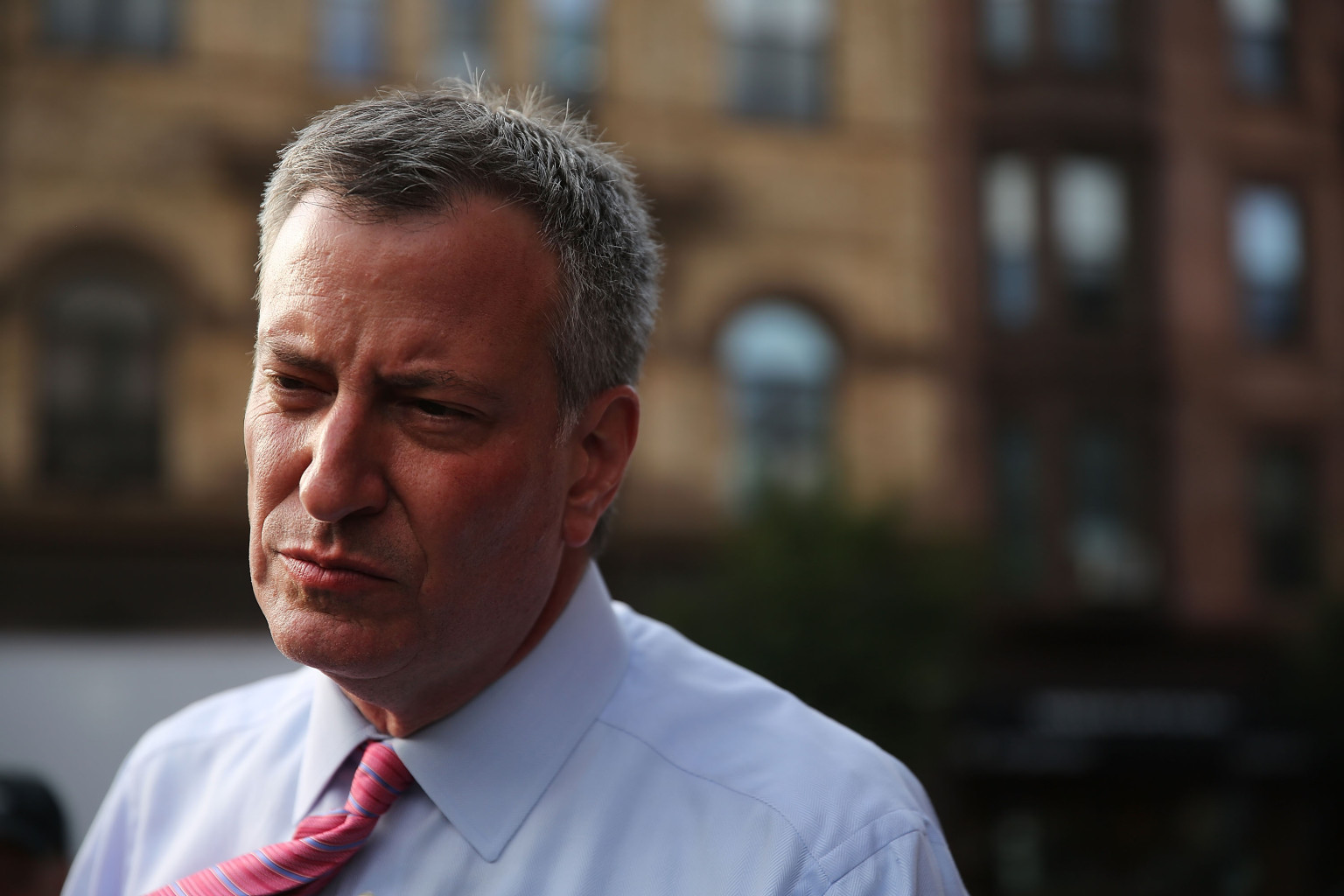(Source: Bill deBlasio)
Victory creates an ex post facto sense of inevitability, so it’s worth remembering how unlikely Bill DeBlasio’s Democratic primary win seemed just a few months ago when Christine Quinn was still thought to be Bloomberg’s anointed successor.
Last spring, I went to a forum at New York Law School where all the candidates except Anthony Weiner (who hadn’t announced yet) were present. I was dumbstruck by how dull and tentative Bill Thompson seemed and how grating and full of herself Quinn was.
DeBlasio, on the other hand, exuded confidence and relaxed authority, and for a guy reporters like to call “professorial,” he was notably lacking in condescension. The only thing missing was the sense that voters might actually gravitate towards him. But—and in a world in which an all-present media never stops telling us what we are thinking and feeling, it’s important to keep this in mind—sometimes the media gets it completely wrong.
| The takeaway: When a Democrat talks about soaking the rich these days, few in the working class are going to think they’re talking about the working class. When a Republican appeals to the middle class, almost everyone will know that they’re really reaching out to the rich. |
DeBlasio didn’t win yesterday because of the TV commercial that his son Dante starred in, or, as Gail Collins put it in her column Thursday, because he “appealed to our multiethnic yearning for racial harmony,” although that certainly didn’t hurt.
He won because he named the elephant in the room: the horrific economic inequality that came along with New York’s new prosperity. The average rent on a New York City apartment surged past $3,000 this summer. The city’s per capita income, on the other hand, is $31,796; its median household income just $56,951.
To point that out isn’t to engage in class warfare—it’s simply to acknowledge the truth.
If the people in the mainstream media and the center-left establishment didn’t make so much money themselves (and more importantly, if they didn’t answer to people who make even more), they would have seen the writing on the wall. The New York Times, which endorsed Quinn and ran some very tendentious coverage of DeBlasio during the campaign, completely failed to grasp how ambivalent even relatively privileged New Yorkers feel about living in homes that they could never afford to buy at their current prices, and how strange and scary and alienating it is for someone who doesn’t belong to the 1 percent to live in a city in which $1 million-plus cash deals for studio apartments are becoming the norm.
For all his schoolmarmishness and thin skin, Bloomberg has been a more-than-competent mayor in many ways. But while running a city for the benefit of the very rich might be a winning strategy for economic development (some income does trickle down), eventually it’s going to rub voters the wrong way. New Yorkers were sick of Ed Koch and Rudy Giuliani at the end of their reigns, too—and Bloomberg bought and bullied his way into a third term. Of course Quinn was going to pay a price for that. Why did she think Thompson got as many votes as he did four years ago? It wasn’t because people liked him—they were sending a message to Bloomberg.
Weiner repeatedly identified himself as “middle class” in his commercials and speeches; he attested to his love for the middle class in his concession speech, too. The words don’t mean what they used to.
Once upon a time almost all Americans thought of themselves as “middle class”—and more to the point, middle class and ascendant. The Great Depression, John Steinbeck famously quipped, wasn’t enough to spark a socialist uprising because so many American workers believed they were “temporarily indisposed millionaires.” These days lots of honest to God millionaires are having a hard time making ends meet in New York.
I’m guessing that the next phase of the election will be fought over some out-of-context thing that DeBlasio said 20 years ago about sex, drugs, Israel, Muslims, or some other hot-button cultural issue. I don’t know what else the Republicans will have to throw at him, but they’re going to have a hard time winning the white, blue-collar votes that put Giuliani and Koch over the top. When a Democrat talks about soaking the rich these days, few in the working class are going to think they’re talking about them. When a Republican appeals to the middle class, almost everyone will know that they’re really reaching out to the rich.
Over the past decade, New York City has been a kind of petri dish for the neoliberal economic ideas that are associated with Bill Clinton no less than they are with Ronald Reagan. Amazing things have happened—but the rewards have mostly flowed up. As Peter Beinart noted in his column in The Daily Beast Thursday, the New York primary was more than a referendum on Bloomberg. It was part of “a vast shift that could upend three decades of American political thinking.”
“It’s a challenge,” he adds, “that Hillary Clinton should start worrying about”—and, depending on how things go in November, a bellwether for Elizabeth Warren, “a candidate who can inspire passion and embody fundamental change, especially on the subject of economic inequality and corporate power, a subject with deep resonance among Millennial Democrats”—the only segment of the US population, Beinart points out, who “describe themselves as ‘have nots’ rather than ‘haves.’”
Arthur Goldwag is the author of Isms & Ologies; Cults, Conspiracies, and Secret Societies, and most recently The New Hate: A History of Fear and Loathing on the Populist Right. He lives in Brooklyn with his wife and two children. Follow him at @ArthurGoldwag.







0 Comments